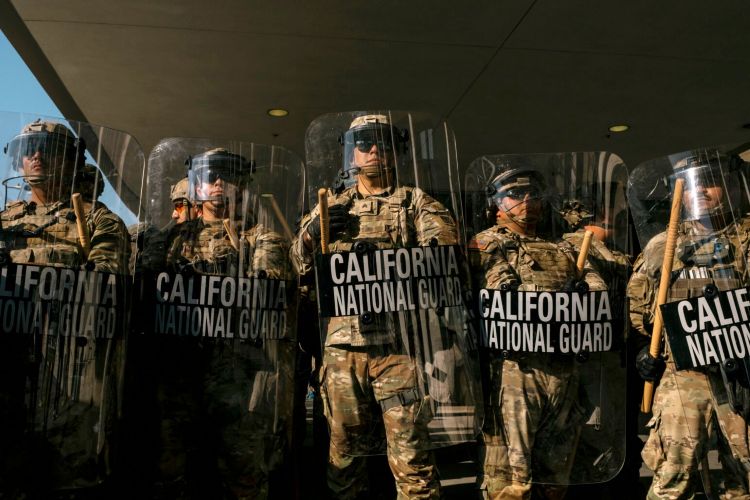Pentagon Orders Withdrawal of 2,000 National Guard Troops from Los Angeles as Immigration Protests Continue
In a major shift in the federal government's domestic security posture, U.S. Defense Secretary Pete Hegseth has ordered the withdrawal of 2,000 California National Guard troops from Los Angeles, citing the success of their mission to protect federal property and personnel during recent immigration-related unrest.
The move, announced by the Pentagon on Tuesday, comes after more than a month of heightened military presence in the city, which had seen widespread protests in response to federal immigration enforcement raids. Despite the drawdown, 2,000 National Guard troops and approximately 700 U.S. Marines will remain stationed in the region.
“Thanks to our troops who stepped up to answer the call, the lawlessness in Los Angeles is subsiding,” said Pentagon spokesperson Sean Parnell. “As such, the Secretary has ordered the release of 2,000 California National Guardsmen from the federal protection mission.”
The deployment originally began in June, when President Donald Trump ordered National Guard and Marine units to the city to safeguard federal buildings and Immigration and Customs Enforcement (ICE) agents amid growing resistance to workplace immigration raids. The decision came despite opposition from California Governor Gavin Newsom, who warned against militarizing the response.
Legal challenges to the deployment followed swiftly, but a U.S. appeals court upheld Trump’s authority to control California’s National Guard under federal orders. The move sparked a fierce national debate over the domestic use of military forces and further escalated political tensions in one of the nation's most populous urban centers.
Los Angeles Mayor Karen Bass, a vocal critic of the troop deployment, welcomed the partial withdrawal, attributing it to sustained public pressure. “This happened because the people of Los Angeles stood united and stood strong,” Bass said. “We organized peaceful protests, we came together at rallies, we took the Trump administration to court — all of this led to today’s retreat.”
Bass referenced a federal court order stemming from a lawsuit in which the city was a plaintiff. The order prohibits immigration officers from detaining individuals based solely on race or language, specifically citing Spanish-speaking individuals as targets of discriminatory practices.
The deployed troops were granted limited authority to detain individuals who pose threats to federal agents or property, but not to make arrests — those remain the responsibility of local law enforcement. Military officials are prohibited from directly carrying out arrests under current policy.
President Trump has doubled down on his vow to deport millions of undocumented immigrants, targeting industries such as agriculture and cannabis production. Many of these sectors had previously seen relaxed enforcement during his first term.
Last week, one of the largest and most contentious raids took place at two sites operated by Glass House Farms, a cannabis cultivation company. Armed ICE agents, backed by military-style National Guard units, swept through facilities in Carpinteria (Santa Barbara County) and Camarillo (Ventura County). The raids resulted in the detention of 319 undocumented individuals and the discovery of 14 migrant minors, according to Department of Homeland Security Secretary Kristi Noem.
The federal government has also expanded military operations near the U.S.-Mexico border, where active-duty troops have been deployed and new military enforcement zones have been created. These zones provide legal grounds for detaining migrants without invoking the Insurrection Act of 1807, which would authorize broader military intervention on U.S. soil.
Though the National Guard's presence in Los Angeles is now reduced, the underlying tensions surrounding immigration enforcement, federal authority, and the use of military resources remain firmly in place.

COMMENTS (0)
Sign in to join the conversation
LOGIN TO COMMENT